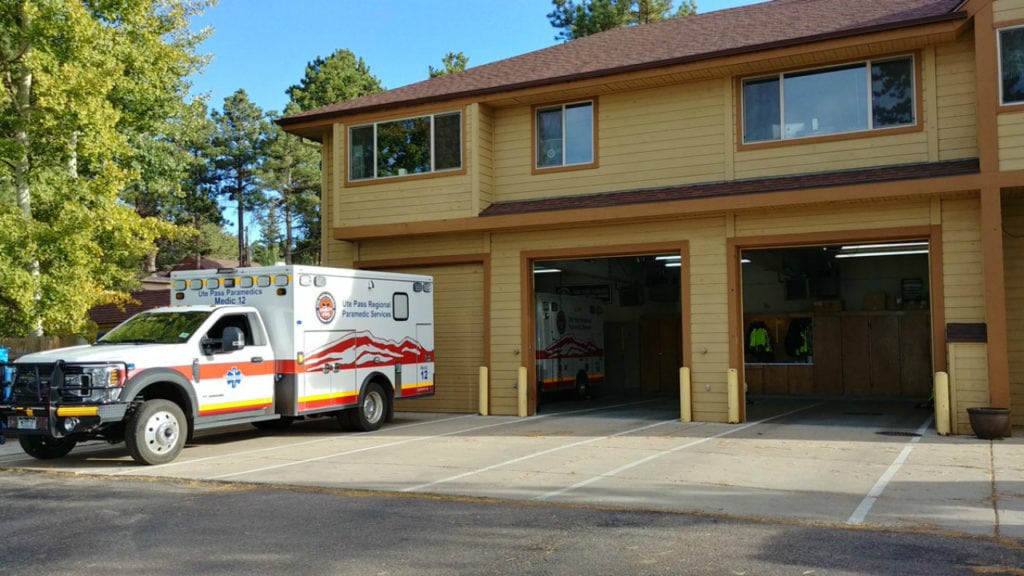WOODLAND PARK – Waiting 22 minutes for an ambulance seems unacceptable, but it’s reality inside the Ute Pass Regional Ambulance District.
It’s not due to a lack of skill, just unfavorable numbers, said Critical Care Paramedic Daniel Campbell.
“We’re just seeing a continual increase in call volume. It’s really starting to affect our response times,” Campbell said.
The agency doesn’t have enough money to fully fund the resources needed, including ambulances, equipment and personnel. That’s why the district is asking its voters, who live in Teller, Park and Douglas Counties, to pass a half-cent sales tax increase in the November election.

Call volume across the district is increasing, though that isn’t the problem. Those calls are now happening at the same time, tying up available resources.
“It’s incredibly frustrating. It makes you feel bad that you can’t go out and help those other people, and they just kind of have to wait at this point,” Campbell said.
Timothy Dienst, CEO for the district, reiterated that point.
“Forty percent of the time we get one call, we get another call, which leaves the district uncovered for extended periods of time. On average, eight hours every day, there’s no ambulances available in all of northern Teller County,” Dienst said.
Now, the district is sounding the alarm on its revenue shortfalls, hoping to provide high-quality care and retain the people to do so.
Ute Pass Regional Ambulance District has had to cut expenses in the mean time — an on-duty ambulance, paramedic and EMT raises, training, facility improvements and more.
Dienst said more cuts would be coming without the tax increase.
“So, not only will we be able to keep the medics that we have on the street every day, but we’ll be able to add resources, additional ambulances, to meet growing demand,” Dienst said.
The district’s current financial status stems from a number of issues.
First, its main revenue sources are property taxes (regulated by state law) and patient payments, both of which have been decreasing in recent years.
District data shows 80 percent of the patients Ute Pass Regional Ambulance District serves pay with a trio of options: Medicare, Medicaid or private pay. All of those options bring with them lower payments.
Dienst told News 5 it costs $1,769 to send the ambulance out the door. With the aforementioned payment plans, those patients aren’t even paying 25 percent of the cost.
Second, Dienst calculated that 36 percent of all patients are visitors to the district. Not only do they not factor into the property tax collection, Dienst said historically, those visitors choose not to pay their bills, thus forcing him to raise pricing.
That’s why he chose the sales tax route, so that all visitors to the district, should they spend any money in town, are helping fund the ambulance service.
“With the non-district residents consuming so much services and not paying for it, the sales tax makes more sense to generate revenues from even them to improve the ambulance services as well,” Dienst said.
Third, the costs of operating an ambulance provider are steadily increasing. Just one ambulance costs more than $300,000 to purchase, including the vehicle itself, the $32,000 stretcher, and other necessary equipment. That doesn’t include maintenance, fuel, salaries and more.
Critics argue that this is essentially a double tax.
Dienst said he understands that argument, but that the amount of money it will cost taxpayers will make a tremendous impact on the ambulance district.
He estimated that a person spending $15,000 on sales taxed goods and services would then spend around $75 extra on just the sales tax. In turn, that would bring in around $1.2 million in new revenue for the Ute Pass Regional Ambulance District.
Voters head to the polls on November 6.
